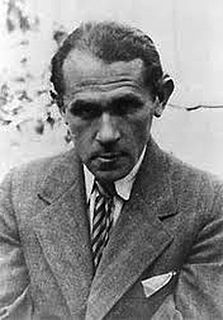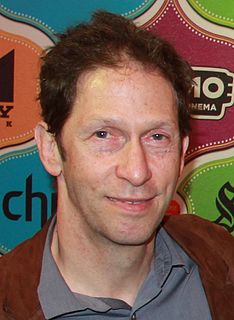A Quote by Lauren Groff
I love writing from enclosed spaces: you really learn about your characters when they have tight walls to push against.
Related Quotes
I think that I write much more naturally about characters in solitude than characters interacting with others. My natural inclination - and one that I've learned to push against - is to give primacy to a character's interior world. Over the three books that I've written, I've had to teach myself that not every feeling needs to be described and that often the most impactful writing more elegantly evokes those unnamed feelings through the way characters speak and behave.
I create enclosed spaces mainly by means of thick concrete walls. The primary reason is to create a place for the individual, a zone for oneself within society. When the external factors of a city's environment require the wall to be without openings, the interior must be especially full and satisfying.
There's a certain amount of pressure that goes with writing superhero characters, especially characters that are beloved to audiences. You know that you're always writing into a certain amount of expectations and into an existing fandom, and I try to take the pressure of that in when I first accept a project and then I try to push it aside as much as possible and just focus on the story that I want to tell. It's definitely a little more pressure than writing something of your own, from your own brain, and creating those expectations from scratch. But I also like the challenge of it.
Is it really sick for me to be happy right now?" I asked. My voice broke twice. He didn't push me away. He pulled me tight against his ice-hard chest, so tight it was hard to breathe, even with my lungs securely intact. "I know exactly what you mean," he whispered. "But we have lot of reasons to be happy. For one, we're alive." "Yes," I agreed. "That's a good one." "And together," he breathed. His breath was so sweet it made my head swim.
Kids, if anything, are harder to write for because they are a more discerning audience. They will not stay with you if you go off on a tangent or if you give them extraneous information that doesn't serve the story. You really have to tell a tight story. You have to give them humor and suspense and believable characters. All those things that adults want too, but you have to be really on your game when you're writing for kids.
You cannot have your news instantly and have it done well. You cannot have your news reduced to 140 characters or less without losing large parts of it. You cannot manipulate the news but not expect it to be manipulated against you. You cannot have your news for free; you can only obscure the costs. If as a culture we can learn this lesson, and if we can learn to love the hard work, we will save ourselves much trouble and collateral damage. We must remember: There is no easy way.






































